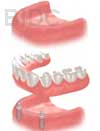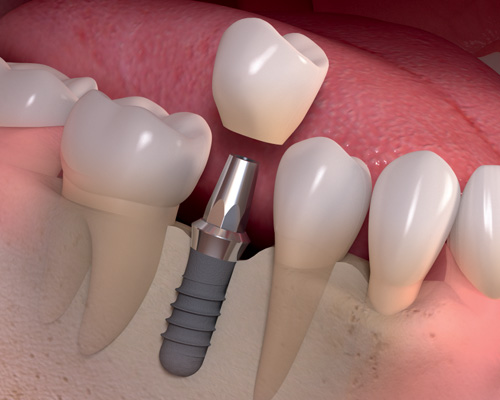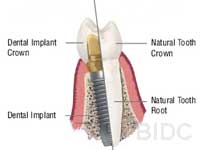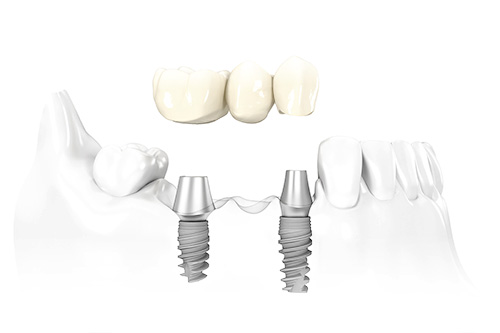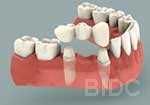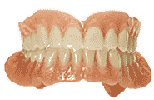Implant Types
- admin
- 0 Comments
- dental teeth implants, dental tooth implants, implant types, teeth implant, teeth implants, tooth implant, tooth implants, types of dental implant, types of dental implants
Types of Dental Tooth Implants
General Component Parts of A Dental Implant
A dental implant is a titanium screw that is carefully positioned into the jawbone to act as a foundation for supporting artificial teeth, crowns, bridges or dentures.
A dental implant may also be viewed very smiliar to that of a natural tooth: titanium post : that acts as the root replacement embed in the jaw bone abutment & crown : the false tooth replacement placed over the implant post
A natural tooth has two main parts: root : which is in the bone and holds the tooth in place crown : the visible teeth part most people think of as the tooth
An implant restoration is thus made up of 3 main parts: 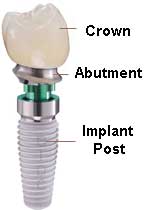 1. Implant Posts: An implant post is a titanium “screw” surgically inserted into the bone of the jaw that act as a replacement root for the missing tooth. Implant posts are normally threaded on its external surface and the internal aspect of the implant is usually a hollow well with screw threads. Titanium is chosen for this purpose because titanium is inert, biocompatible and integrates with the surrounding jaw bone with minimal risk of infection. 2. Abutment : An abutment acts as the “stump” that holds the crown or false tooth that is screwed into the implant posts. 3. Crown : The crown is the visible false tooth of the implant restoration. Crowns on implants resembles a crown on natural tooth in almost every way. Crowns on implants can be porcelain fused to metal crowns or full ceramic crowns.
1. Implant Posts: An implant post is a titanium “screw” surgically inserted into the bone of the jaw that act as a replacement root for the missing tooth. Implant posts are normally threaded on its external surface and the internal aspect of the implant is usually a hollow well with screw threads. Titanium is chosen for this purpose because titanium is inert, biocompatible and integrates with the surrounding jaw bone with minimal risk of infection. 2. Abutment : An abutment acts as the “stump” that holds the crown or false tooth that is screwed into the implant posts. 3. Crown : The crown is the visible false tooth of the implant restoration. Crowns on implants resembles a crown on natural tooth in almost every way. Crowns on implants can be porcelain fused to metal crowns or full ceramic crowns.
Types of Dental Implants
There are a variety of dental tooth implants that may be done in replacing single, mulitple, full arch or full mouth missing gaps. Dental teeth implants may be used with crowns, bridges and dentures in replacing missing gaps in teeth.
Single Dental Tooth Implant
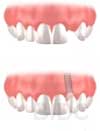
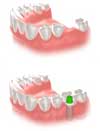
Mulitple Dental Tooth Implants
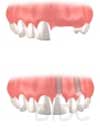
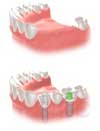
Full Arch Dental Teeth Implants
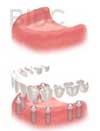
Full mouth Dental Teeth Implants
